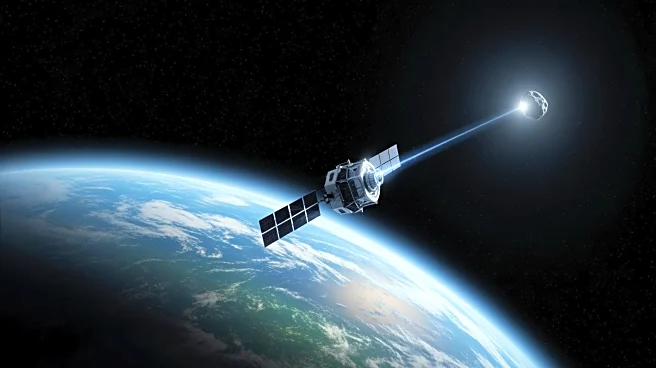What's Happening?
On November 3, 2025, fertilizer prices surged due to China's new export restrictions amid geopolitical tensions with Russia. These restrictions have disrupted global fertilizer supply chains, leading to increased
production costs for farmers worldwide. The situation is exacerbated by simultaneous challenges in the automotive sector, where German suppliers are seeking chip export exemptions from China amid declining electric vehicle demand. The geopolitical tensions between China and Russia, both major players in the global fertilizer market, are causing ripple effects across economies, affecting food prices and supply chains globally.
Why It's Important?
The surge in fertilizer prices is significant as it directly impacts food production costs, potentially leading to higher food prices for consumers worldwide. Farmers, especially smallholders, may face financial strain due to increased input costs, affecting their ability to maintain production levels. The automotive sector is also affected, with supply chain disruptions leading to potential production halts and decreased demand for electric vehicles following the expiration of federal tax credits. These developments highlight the vulnerability of global supply chains to geopolitical tensions and the need for diversification to mitigate such risks.
What's Next?
Policymakers face the challenge of ensuring stable supplies of critical goods like fertilizer and semiconductors amidst an increasingly fragmented global economy. There is a growing call for diversification of supply chains to reduce reliance on a few countries for key inputs. However, achieving diversification in complex industries like fertilizer production and semiconductor manufacturing is challenging. Consumers may need to adjust to higher food prices and reduced availability of new vehicles, impacting household budgets and purchasing decisions.
Beyond the Headlines
The geopolitical use of trade restrictions and export controls by countries like China and Russia underscores the strategic leverage they hold over global markets. This situation may lead to long-term shifts in international trade policies and economic strategies, as countries seek to protect their interests and ensure food security. The interconnectedness of industries means that disruptions in one area can have widespread effects, highlighting the need for adaptability in a volatile global economy.








